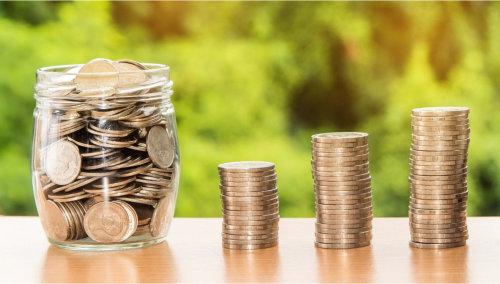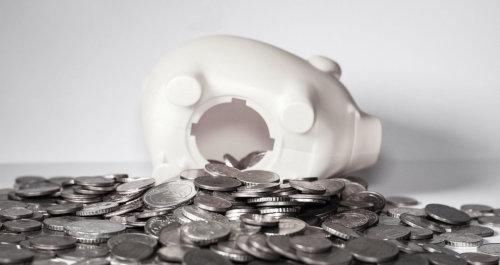Saving money is a goal many of us strive to achieve. Whether you're saving up for a big purchase, trying to build an emergency fund, or simply looking to cut
expenses, there are numerous strategies you can employ to help you reach your financial goals. Here are five organized ways to save money that are practical and effective.
1. Try Smaller Versions of Scents: On a recent shopping trip, I came across a shelf filled with tiny
containers (travel size) of popular fragrances that instantly caught my attention. Fragrances can be expensive. Purchasing a full-sized version without knowing if you truly love it is a gamble.
While you can sample perfumes in the store, it's challenging to determine your preference amidst the blend of scents from other shoppers. By opting for small-sized bottles, you can try different scents for a few weeks before committing to a larger, more expensive bottle.
By the way, I'm not recommending you test out five or ten of these tiny travel sizes at a time, which can easily end up in clutter. That being said, if you typically wear a scent, obtaining one or two can help you zone in and make a fairly quick decision.
If you decide, after a few days, that you really are not enjoying one of these scents, pass it on to a friend or co-worker to try.
2. Buy in Bulk, But Only When Appropriate: Buying
items in bulk can be a cost-effective option for frequently used products, but only if you are certain that you a) love and regularly consume those items, b) have the appropriate amount of space in your home to store them, and c) there is a 100% chance you'll use them up before they expire (when perishable.)
From a personal standpoint, I would never buy in bulk without first ensuring that the item is a clear favorite among my family members... even if the price looks like a steal. We carefully evaluate and compare different brands in small quantities, considering factors such as quality, price, and overall satisfaction.
3. Trying Store Brands: Many consumers have a tendency to gravitate towards name-brand products assuming they are of higher quality. When I was a kid, my parents only purchased brand names. It was their assumption that if the product didn't have a name brand attached to it, it wasn't as good. That was ingrained in me.
However, throughout the years in an effort to not waste money, I've tried store-brand alternatives and they often provide comparable quality at a significantly lower price. When I notice there is a store-brand, if it's significantly less than the name brand, I take the opportunity to try it out.
It doesn't work out all of the time, but I know that I am personally pleasantly surprised by the savings without sacrificing quality, around 8 out of 10 times. This recently happened with a cereal my family likes. The name brand was over $6. The store brand was $2.50. The result: It tastes exactly the same, but costs significantly less.
4. Investing in Smart Plugs: Reducing your electricity bill can contribute significantly to your overall savings. One practical way to achieve this is by investing in smart plugs. When you get yourself smart plugs, you first plug the smart plug into the outlet, plug your lamp, appliance, etc. into the smart plug and then use a smartphone app to voice commands and control your devices.
For example, you can turn off lights, power down electronics, or activate appliances with just a few taps on your smartphone or a voice command.
It's really
easy.
So when you're on the road and thinking to yourself, "Did I remember to turn my curling iron off," you'll have peace of mind knowing you have the power to stop the power supply to
that appliance from wherever you are.
By harnessing the power of smart plugs, you can reduce your electric bill, keep more money in your pocket, and protect your home from potential
hazards.
5. Drink Water: When it comes to beverages, water is not only the healthiest choice, but also the most economical. Many beverages, such as soda, juice, and specialty coffee, can be costly and can add up over time.
Keeping a reusable water bottle with you at all times can help you avoid the temptation to buy expensive bottled drinks while on the go.
When you're
eating out at a full-service restaurant, consider opting for water over a fountain drink. Even when you might stop at a fast food restaurant on occasion, buying a burger and fries alone, for example, is often much cheaper than purchasing them as part of a value meal that includes a soda or other fountain drink.
Remember, every penny saved adds up, and with these organized approaches, you'll be well on your way to achieving your financial objectives.












